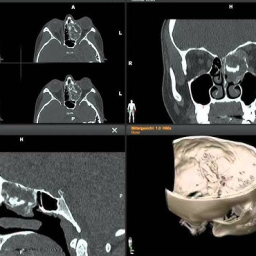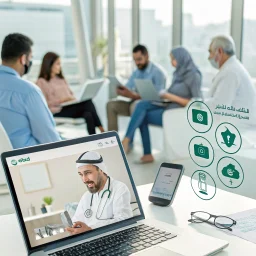
In today’s evolving healthcare environment, application software in hospital information system plays a crucial role in streamlining operations, improving patient care, and enabling secure digital workflows. With the advancement of health IT and digital infrastructure in Saudi Arabia and the United Arab Emirates (UAE), hospitals now rely heavily on cutting-edge software systems to meet the demands of modern healthcare delivery.
HealthCluster, a trusted name in the healthcare tech sector, is at the forefront of deploying innovative, compliant, and localized hospital information solutions across the Gulf region.
What is Application Software in Hospital Information System?
Application software in hospital information system refers to specialized digital tools and programs that support and manage the clinical, administrative, financial, and operational activities in a hospital setting. These include modules for:
- Electronic Medical Records (EMR)
- Electronic Health Records (EHR)
- Patient Registration
- Billing and Insurance
- Lab Information Management (LIMS)
- Pharmacy Systems
- Radiology and PACS
- Telehealth Integration
Each component is designed to work together under a unified digital ecosystem, ensuring real-time access to critical patient data, secure communication, and efficient workflows across departments.
Why UAE and Saudi Arabia Are Investing in HIS Software
Vision 2030 and Digital Health Goals
Both Saudi Arabia (through Vision 2030) and the UAE are focused on transforming their healthcare sectors by investing in digital health infrastructure. Their strategic priorities include:
- Enhancing patient care through automation
- Reducing manual errors in diagnostics and treatments
- Boosting operational efficiency
- Implementing AI-driven analytics and remote patient monitoring
To achieve these goals, the adoption of application software in hospital information system is not just a preference but a necessity.
HealthCluster’s Role in HIS Software Excellence
As a leader in healthcare technology, HealthCluster specializes in implementing hospital information systems that are tailored to meet the unique regulatory and operational needs of the Middle East. With a focus on:
- Data security and GDPR compliance
- Arabic/English bilingual interfaces
- Cloud and on-premise hybrid models
- Scalability for public and private hospitals
HealthCluster delivers both the technology and the consulting expertise to ensure seamless adoption.
Real-World Experience (E-E-A-T)
HealthCluster’s successful rollouts in hospitals across Riyadh, Jeddah, Dubai, and Abu Dhabi highlight its practical experience in deploying large-scale health information systems. These implementations have led to measurable improvements in patient outcomes, billing accuracy, and administrative speed.
Core Features of Modern Application Software in Hospital Information System
1. Centralized Data Management
All patient, lab, and diagnostic data is stored in one secure place, accessible in real-time.
2. Interdepartmental Integration
From ER to Radiology, all departments collaborate through unified dashboards and smart workflows.
3. AI-Based Decision Support
Clinical decisions are enhanced with AI-driven suggestions, alerts, and diagnostic patterns, reducing medical errors.
4. Patient Portal Access
Patients in Saudi Arabia and UAE can now access their own health records, test results, and appointments from secure portals.
5. Regulatory and Insurance Compliance
Built-in compatibility with insurance codes, NPHIES, DHCC, and other regional regulations.
Semantic SEO: How HIS Software Impacts Every Touchpoint
A strong application software in hospital information system is no longer just about backend IT. Its influence spans across:
- Hospital administration (finance, HR, scheduling)
- Clinical departments (diagnostics, surgery, maternity)
- Pharmacy and logistics
- Government reporting and public health
Each module improves efficiency, transparency, and decision-making at every level of hospital operation.
Benefits for Saudi and UAE Healthcare Providers
| Benefit | UAE Hospitals | Saudi Hospitals |
|---|---|---|
| Reduced paperwork | ✅ | ✅ |
| Faster billing | ✅ | ✅ |
| Enhanced patient safety | ✅ | ✅ |
| Better resource planning | ✅ | ✅ |
| Real-time dashboards | ✅ | ✅ |
How HealthCluster Ensures Trust and Compliance (E-A-T)
- Expertise: Over 10 years in healthcare IT implementation across MENA region
- Authoritativeness: Partnered with leading hospitals and clinics in Dubai, Riyadh, and Dammam
- Trustworthiness: Transparent pricing, full support, and strong data encryption policies
The Future of Hospital Application Software in GCC
The future of application software in hospital information system is set to go beyond hospital walls. Emerging technologies like:
- Remote Patient Monitoring (RPM)
- Telehealth Integration
- Mobile Health (mHealth)
- Blockchain for Medical Records
…are already being explored by HealthCluster to support hospitals in the GCC region, especially in line with future healthcare trends in UAE and Saudi Arabia.
Final Thoughts
Implementing application software in hospital information system is a game-changer for healthcare providers in Saudi Arabia and the UAE. It improves service delivery, ensures regulatory compliance, and puts patients at the center of care.
HealthCluster continues to drive this transformation with tailored, secure, and smart HIS platforms for hospitals that aim for operational excellence and patient trust.
FAQs
What is application software in hospital information system?
It is a suite of digital tools that manage patient records, billing, diagnostics, and administration in a hospital.
Why is HIS important in UAE and Saudi hospitals?
Because it enhances efficiency, reduces manual errors, and supports the region’s digital healthcare vision.
Does HealthCluster provide support in Arabic?
Yes, HealthCluster offers bilingual interfaces and full regional language support.
How does HealthCluster ensure data security?
By using end-to-end encryption, access control, and GDPR-compliant storage.
Can small clinics use this software too?
Yes, HealthCluster’s HIS can be scaled down for clinics and up for full hospital networks.
















